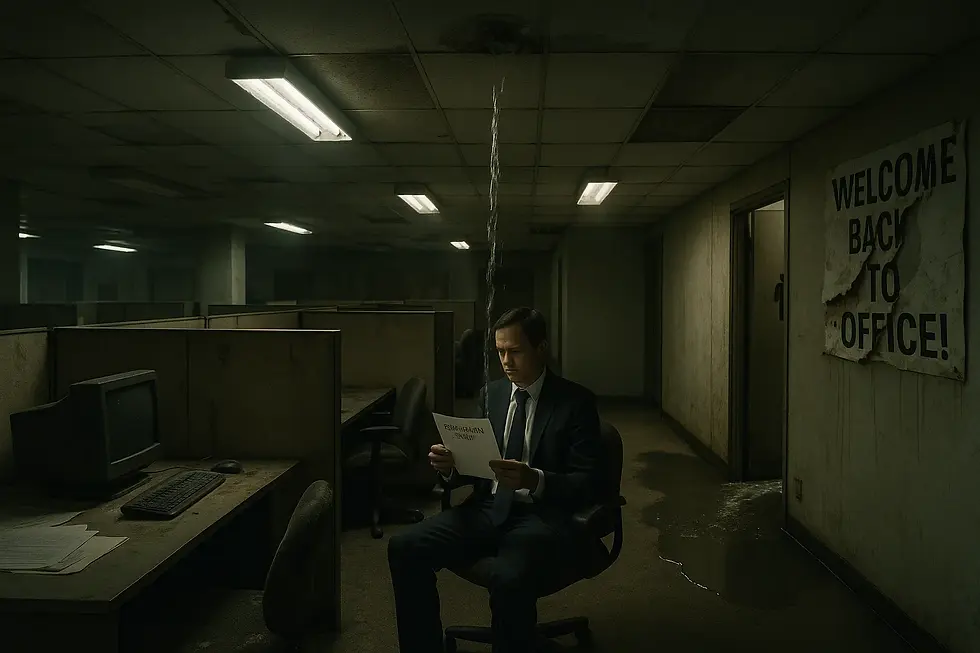Florida DFS and the Fingerprinting Monopoly: A Decade of Unjustified Exclusivity
- Robinson Joel Ortiz

- Sep 15, 2025
- 3 min read
Updated: Sep 16, 2025

Florida DFS and the Fingerprinting Monopoly: A Decade of Unjustified Exclusivity
For over a decade, the Florida Department of Financial Services (DFS) has forced applicants for licenses to use one company and one company only—IdentoGO by Idemia—for fingerprinting. This arrangement is not only unwarranted and unjustifiable, but it also looks like a textbook example of government-enabled monopoly.
🔎 How Fingerprinting Really Works
Here’s what most people don’t realize:
• All fingerprint vendors in Florida must be FDLE-approved.
• Every vendor, whether it’s IdentoGO, UPS, Fieldprint, or Accurate Biometrics, follows the exact same FBI/FDLE technical standards (encryption, formatting, chain of custody).
• All fingerprints go to FDLE first. FDLE then transmits the results to the requesting agency.
👉 Which vendor you go to makes no difference in the outcome. The standard is FDLE, not IdentoGO.
📜 The DFS Contract Trail
In 2013, DFS signed a contract with IdentoGO’s parent company (then MorphoTrust, now Idemia). That contract:
• Ran from 2013–2016, later extended through 2019.
• Was originally bid through a competitive RFP process, with DFS paying about $48 per employee submission, later reduced slightly in renewals. But there is the thing DFS doesn’t pay anything the applicant does! So where is this contract coming from?
• Expired in October 2019.
Yet in 2025, DFS still requires all applicants to use IdentoGO exclusively. There is no evidence of a new competitive bidding process since 2013. That means for six years and counting, DFS has either:
1. Quietly extended an expired agreement, or
2. Enforced exclusivity with no valid contract justification at all.
💰 The Money Problem
• Applicants pay around $50–$55 per fingerprint submission.
• The storefront operators who actually collect the prints see only about $4 flat per applicant.
• IdentoGO/Idemia controls the wholesale from DFS to FDLE channel and keeps the profits.
This isn’t free-market competition. It’s a chokehold on a state-mandated service.
🌎 Other States and Florida Agencies
Florida isn’t the only place IdentoGO has carved out exclusivity:
• New York: IdentoGO is the only option for civil fingerprinting, including teacher licensing and pistol permits.
• Texas: For vehicle dealer licensing, all fingerprints must go through IdentoGO.
But here’s the key difference: no other Florida agency does this.
• The Department of Business & Professional Regulation (DBPR) accepts fingerprints from any FDLE-approved vendor.
• The Department of Health (DOH) does the same.
• Other licensing boards rely on the FDLE system, not on a single company.
👉 DFS stands alone as the only Florida agency blocking competition.
⚠️ Why This Is Corruption in Plain Sight
• Unwarranted: FDLE standards make exclusivity unnecessary.
• Unjustifiable: Every other Florida agency accepts multiple vendors.
• Continuous: The monopoly dates back to 2013 with no new RFP or justification since 2019.
• Corruption by design: By restricting applicants to IdentoGO only, DFS has handed a private company a decade-long monopoly at the expense of small businesses and consumers.
What IdentoGO and DFS are doing is not about security—it’s about creating a monopoly to push out competitors and force everyone through one channel.
📣 What Needs to Change
1. Legislative Action: Amend Chapter 626, Florida Statutes, to require DFS to accept fingerprints from any FDLE-approved vendor.
2. Transparency: DFS must disclose why exclusivity continues when FDLE already enforces uniform standards.
3. Accountability: Florida’s Chief Inspector General, Legislature, and investigative media must demand answers for why DFS is the only agency operating this way.
🚨 Final Word
This isn’t about security. It’s not about efficiency. It’s about power and control. DFS has effectively granted IdentoGO/Idemia a monopoly for more than a decade—without any technical, legal, or consumer protection justification.
This practice hurts Florida’s small businesses. It hurts consumers. And it betrays the principles of fair trade and free markets that Florida is supposed to stand for.
It’s time to call this what it is: continuous corruption hiding in plain sight.
And it’s time to end it.


